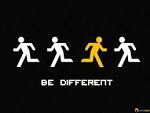
My Uncle Bob was a baker. When he was younger, to the detriment of his family time, he worked double shifts to save $50,000 so he could become an entrepreneur. Taking that money, along with his life savings, Bob and his wife opened up a bakery, and during the first three years, spent twenty hours per day developing the business.
Over the next seven years, they sacrificed family vacations and were able to hire a few minimum wage employees to help them grow. As time passed, they hired more and more employees, increasing the wages for managers and continuingto pay minimum wage to the new workers. The business grew and they opened up forty-two more bakeries across the East Coast. By sixty-three, Uncle Bob had built a $60 million dollar business and he and his wife took home over $5 million annually. Still, his newest employees continue to make minimum wage. His first four employees, now in regional managerial positions, had become millionaires.
Yesterday, in discussions with some friends, an argument evolved regarding Uncle Bob.
One side claimed this Mom and Pop business was the epitome of the American Dream, that two folks had risked everything to build a successful business and made their fortune. They suggested the risk of capital, sacrifices of vacations and family, and dedicated hours at the beginning of their venture meant they earned and deserved their large profits. They also argued they’d created millionaires and hundreds of jobs for the people in their communities, andthat while they paid their newest workers minimum wage, these workers were low-skilled laborers who had not yet put in the hard work for the company to merit them more money.
The other side contended Uncle Bob and his wife were symbolic of corporate greediness, building their business on the backs of low wage employees and continuing to pay minimum wage while they basked in the million dollar profits, while no longer working. They argued the highly paid owners surely can afford to take home less, and should increase wages for the lowest earners in the company to ensure those people have more financially secure lives. And they suggested Bob and his wife have a social responsibility to care for their employees’ needs and to recognize that the employees contribute to the success of the business just as much as the owners. They suggested the community would do better to boycott the business until the owners raised the workers’ wages.
I feel like this story encapsulates today’s diametrically opposed views of American entrepreneurship. Is there any way to reconcile the two views?